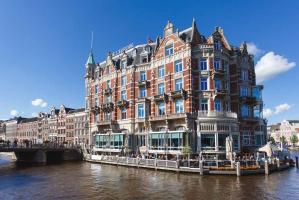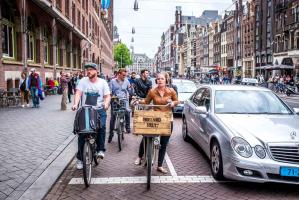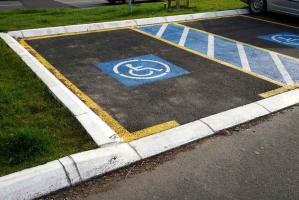Amsterdam bans creation of new hotels
Another piece in the overall strategy to reduce tourist flows to the city
 TheMayor.EU logo
TheMayor.EU logo Currently, municipalities in Germany cannot issue their own maximum speed laws if the latter are below a certain threshold
Last year a number of German cities announced the creation of a new initiative that would advocate for more municipal rights to set speed limits. The founding cities were Aachen, Augsburg, Freiburg, Hanover, Leipzig, Münster and Ulm and with the creation of the organisation, they petitioned other German municipalities to join in.
The initiative is called Liveable cities through appropriate speeds (Lebenswerte Städte durch angemessene Geschwindigkeiten) and its members want the specific right to introduce more 30 km/h low-speed zones. One year later, the initiative has slowly been gaining traction and as of 12 August 2022, it has 263 municipalities.
The initiative’s main principle revolves around the idea that urban liveability and quality of life come from public spaces. These, however, are mentioned as squares, parks and streets, meaning that the interaction between motor traffic and pedestrian traffic is a key factor.
Low-speed zones, consequently, are a great tool to manage that interaction, with numerous examples from the EU. Studies have shown that they reduce noise pollution, carbon dioxide and nitrogen dioxide pollution and decrease the risk of fatal injuries.
However, municipalities do not have the right to introduce them and manage traffic as they see appropriate, based on local needs, demands or concerns. According to initiative organisers, the German Federal Government prohibits installing 30 km/h low-speed zones, unless there is a specific risk they address or they are in front of social facilities, like day-care centres and schools.
A very important note for the initiative, according to its creators, is that it is not only about zones that have a max speed of 30 km/h. It is more about giving local authorities the right to set their own maximum speed limits, which in some cases may be 20 km/h and in others, 40 km/h.
Here are the initiative’s four demands, signed off on by mayors, city councillors responsible for mobility and urban development and urban planning departments:

Legislators and magnates have to await a preliminary ruling from the European Court of Justice

The building will then serve as the site for a new museum dedicated to Finnish-Russian relations

Another piece in the overall strategy to reduce tourist flows to the city

In addition, the federal government has launched the National Week of Action against Bicycle Theft to raise awareness of the issue and the new solution

The facility will replace the need to have water supplied by tankers from Valencia

Modern traffic lights do more than regulate the flow of vehicles at crossroads, they also collect enormous amounts of data

Legislators and magnates have to await a preliminary ruling from the European Court of Justice

It also set the standards for a better European parking card for people with disabilities

Everyone’s invited free of charge, but only after registration

It also set the standards for a better European parking card for people with disabilities

Italian cities and regions continue experimenting with creative proposals to curb overtourism effects

The building will then serve as the site for a new museum dedicated to Finnish-Russian relations

Urban dwellers across the EU are having a say in making their surroundings friendlier to people and the environment.

Forests in the EU can help green the European construction industry and bolster a continent-wide push for architectural improvements.

Apply by 10 November and do your part for the transformation of European public spaces

Catch up with some recommendations for the 2024 European Capital of Culture programme from the mayor of Tartu

An interview with the ICLEI regional director for Europe аfter the close of COP28

An interview with a member of the No Hate Speech Network team













